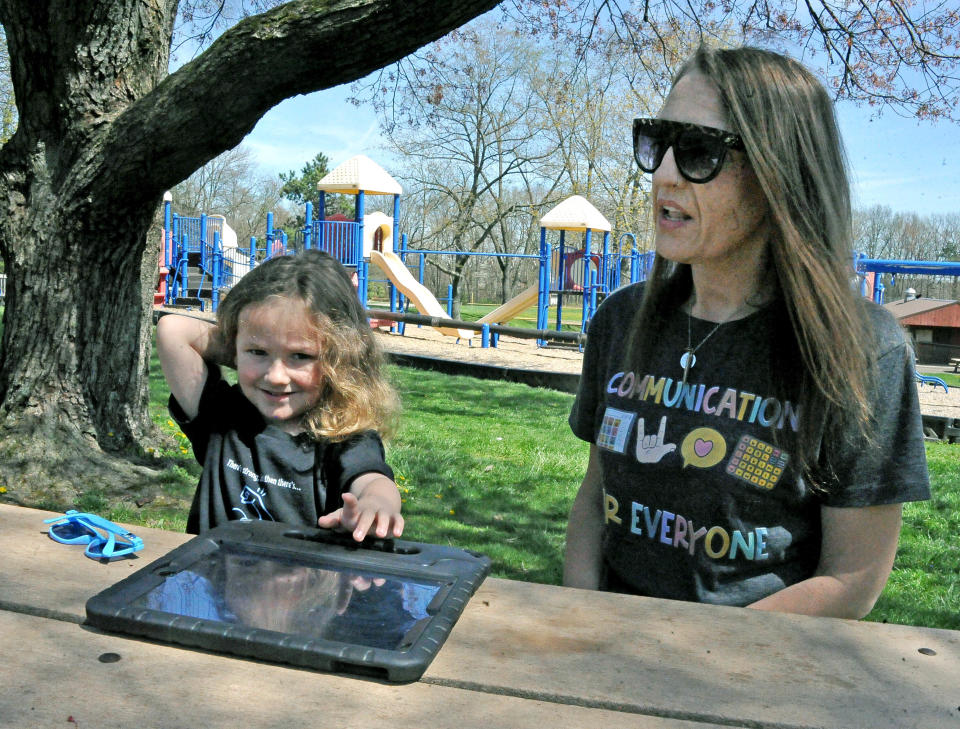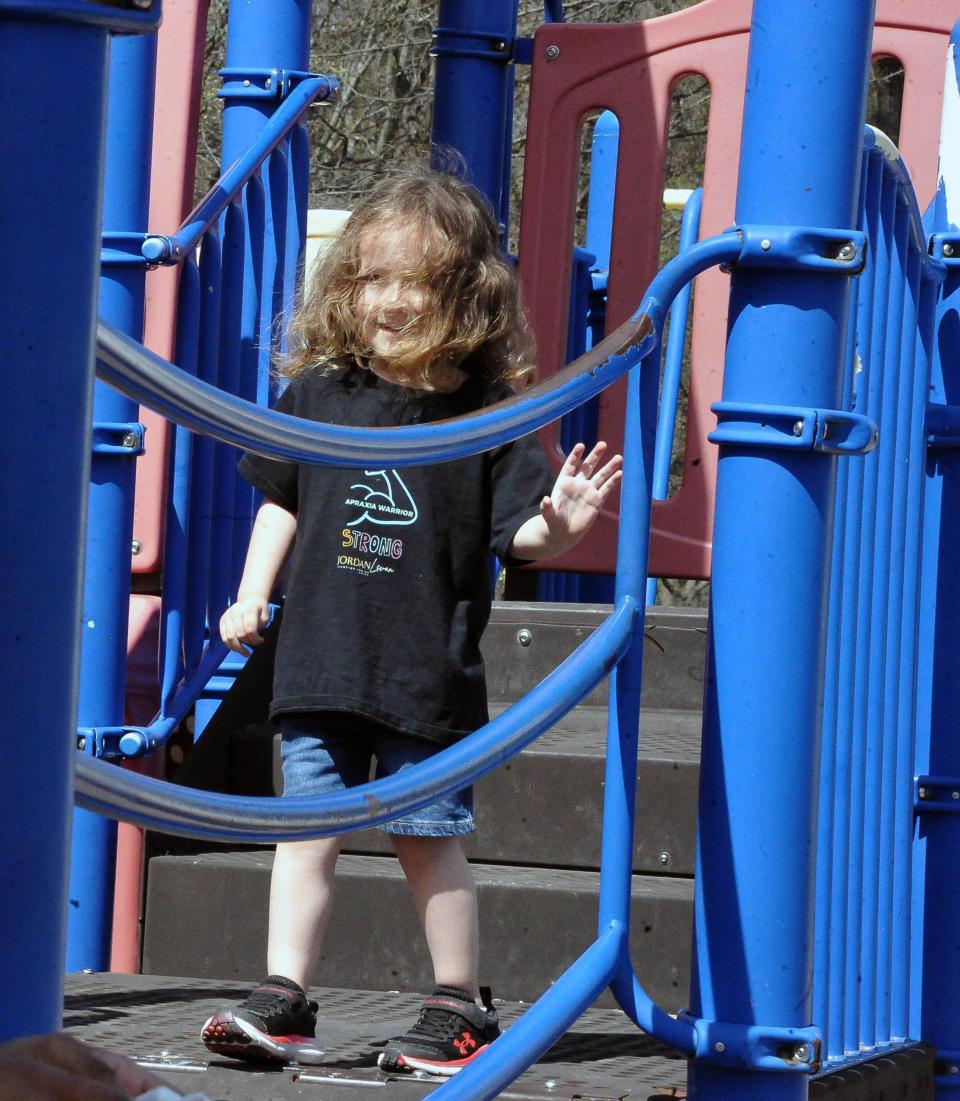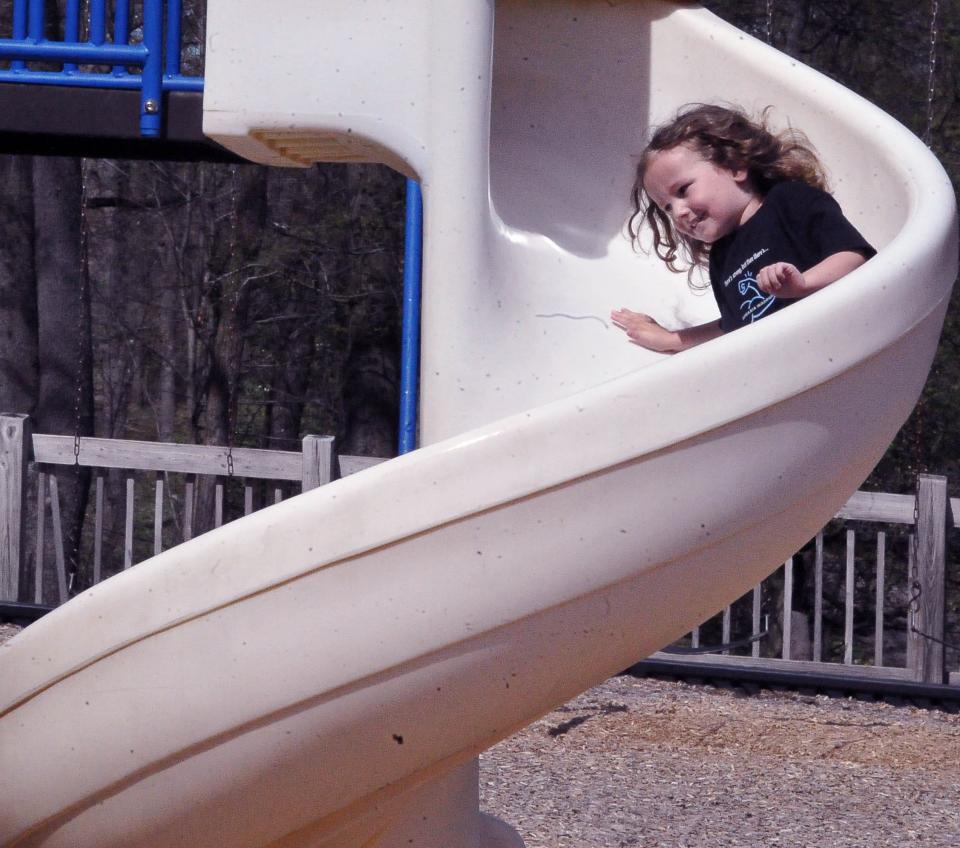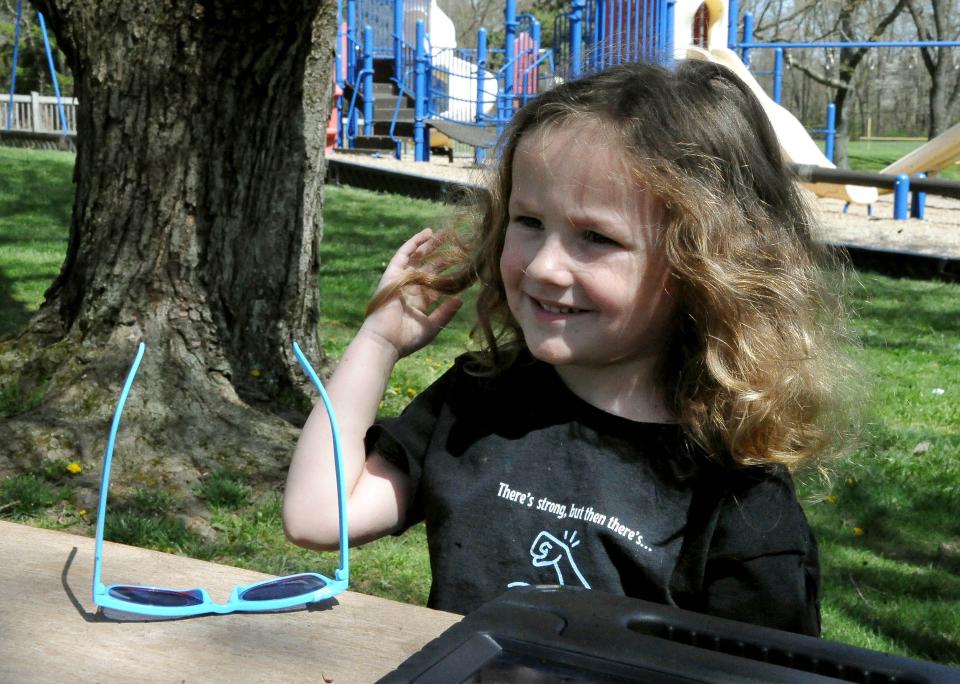Wooster Parks and Rec would put the signs in the seven city parks if funding allows
Sporting curly locks of hair and an engaging smile, 3 1/2-year-old Wesley Hildebrand attracted attention and potential playmates on a recent visit to Freedlander Park in Wooster.
That's typical, according to his mother, Stacey Everhart.
A happy child, Wesley is always ready to make a friend. But he faces a significant barrier − his inability to communicate, the result of a rare disorder called childhood apraxia of speech. The diagnosis was made about a year ago, Everhart said.
His mother is spearheading a fundraising campaign to combat the obstacle through installation of communication boards, first at parks and then schools, with a community collaboration she has been assembling.
Her inspiration and her motivation is Wesley.
Wesley was nonverbal until he was 3 years old, Everhart said. As a baby, "he didn't babble at all. He was completely silent until he was 3."

Watching the children attempt to communicate was heart breaking
Initially, he was thought to have a speech delay and began early intervention at about 18 months old. Intervention has included speech, occupational and feeding therapy, Everhart said.
"We started sign language at 18 months," she said, but, unfortunately, it had some limitations.
Often, when Wesley would sign the word "play" to other children, "they'd shrug and walk away," his mother said.
The looks of disappointment he gave her were heartbreaking. When it happens, "it's the hardest thing," she said. "It's crushing. He wants to play. He wants to have friends."
When they can understand the situation, "kids are generally very kind. They want to help, and they want to learn," she said.

Because of the disorder, his 'mouth is confused'
Because of his disorder, his "mouth is confused," she said. "He can spell. He's so smart." He understands everything people are saying, but is unable to respond.
Before a diagnosis was determined, Wesley attended an early intervention program for a speech delay and used pictures on flash cards to help him communicate.
For example, he could pick out a card with a picture of a park to show his desire to go to the playground.
He can now say some words, but "they're very garbled," Everhart said.
Communication devices, like the AAC (augmentative and alternative communication) device he acquired about six months ago and takes with him every day to Tri-County Educational Service Center Preschool, offers a tremendous benefit.
The only downside is, "kids see it and think games," Everhart said.

Communication boards already were on Wooster Park radar
Everhart came up with a new approach to remove some of the barriers Wesley faces when she read about a mother who orchestrated a vinyl sign with symbols, such as a slide icon or swing icon, to be installed in her child's schoolyard.
"I thought that was an awesome idea," said Everhart, who then emailed Wooster Parks and Recreation about the concept. "The City of Wooster has been so amazing."
The idea actually had come across his desk a few weeks earlier, said Joe Avila, parks supervisor.
Hearing from Everhart "gave me a little bit more inspiration to continue moving forward with it," Avila said.
Avila has been in touch with organizations such as the Boys and Girls Club and the YMCA to solicit ideas on "what kind of things would you want to see on this board" to assist children.

The city also has been working with PRC-Saltillo and Sign Design on a concept for a double-sided board.
Avila said the city will install the boards in Wooster parks. The original plan was to place one at Freedlander Park and Christmas Run Park, but if enough donations are raised, at a potential cost of about $2,000 for each one, communication boards could be placed in all seven of Wooster's parks.
Planning and fundraising
If about three-fourths of the total cost for all of the boards could be raised through contributions, the park's budget possibly could cover the remaining 25%, Avila said.
Julie Hartzler, CEO of IncludeAbility, said her organization is looking forward to working with Everhart to "be a part of this project. It fits with our mission to create a more inclusive community for individuals with disabilities, so we're really excited to partner with her and to help get involved."
Planning and fundraising are ways Hartzler can envision assisting, in addition to possibly overseeing part of the project − "helping in whatever way we can ... to whatever capacity Stacy wants," she said.
Everhart's initial goal was $5,000 to install a board at Freelander Park and another one at Christmas Run Park. But if she exceeds the goal, the additional money will be used toward placing boards in other locations.
Donations can me made through https://giveahand.com/fundraiser/parks-communication-boards or by making a check payable to The City of Wooster with parks communication boards in the memo.
"I hope (communication boards) will help all kids," Everhart said, in addition to adults suffering from aphasia or strokes.
"It will take time to normalize (the concept)," she acknowledged. "I hope another mother in another county sees this" to help spread the idea all over Ohio.
This article originally appeared on The Daily Record: Fundraising begins to place communication boards in Wooster parks

